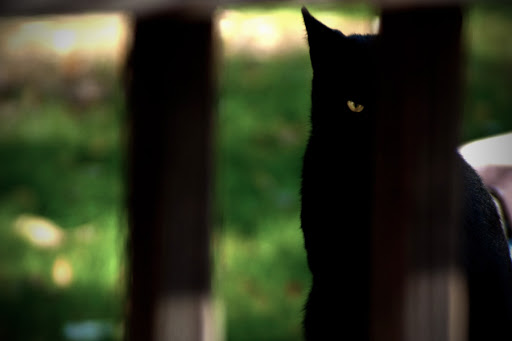Stop! Don’t go to work today. Or least don’t go anywhere you don’t have to. Definitely don’t make any big investments or purchases. Just sit back, play it safe, and make it through the first Friday the 13th of 2013.
Of course, that’s exactly what a person should not do. Such paranoia is actually quite costly: according to Time Magazine, the Stress Management Center and Phobia Institute estimates that $700-$800 million dollars are lost every Friday the 13th because of people's refusal to travel, purchase major items or conduct business.
But how foolish can a person be? Really, being afraid of a day? Hah. That’s like believing in Santa Claus, the Tooth Fairy, leprechauns, mermaids, or, for some people, even like believing in… God.
“[T]he notion of a god is a basic superstition… [T]here is no evidence for the existence of any god(s). Further, devils, demons, angels and saints are myths; there is no life after death, no heaven or hell; the Pope is a dangerous, bigoted, medieval dinosaur, and the Holy Ghost is a comic-book character worthy of laughter and derision,” says James Randi, atheist and highly effective debunker of everything paranormal.
A small but growing number of Americans (6% of the US population) and people around the world identify as either atheists or agnostics. And Randi’s sentiments expressed above are not unusual: for many of them, belief in God is seen as simply irrational.
But is belief in God really the same as being afraid to walk under ladders or to live on the 13th floor of an apartment building? Here’s the Church’s take on superstition:
The Church’s position on superstition is actually quite nuanced. She openly admits that religious practice that’s otherwise legitimate or even necessary can sometimes be misused. The key, she says, is whether a person thinks that certain religious actions are effective by their exterior performance alone, without the necessary accompanying interior dispositions. In other words, God is not a vending machine, he can see our hearts, and he expects us to have integrity between our heart and actions.
The Church also says that irreligion is the opposite extreme. Atheists, agnostics, and other unbelievers may rightly point out excesses, ignorance, and abuses among the faithful, but in rejecting the whole system they throw out the baby with the bathwater. Rather, people should worship God, obey his commands, and seek his help – and should really mean it in their hearts when they do.
But, of course, that’s only if God really does exist. It’s noteworthy that, while almost everything the Church teaches about Jesus, salvation, the Church, etc, is based on what she believes to be divine revelation, the existence of God is one thing the Church insists is knowable through reason alone. The Church taught dogmatically at the First Vatican Council:
This teaching is also confirmed in divine revelation:
“The heavens declare the glory of God; the skies proclaim the work of his hands.” (Psalm 19.1)
The idea here is that the universe itself is evidence of God. There are many different kinds of arguments for God’s existence, but two of the most important are the Teleological Argument and the Cosmological Argument.
Put simply, the Teleological Argument starts with the premise that we all (or at least most of us) intuit purpose or order in the universe. The existence of that purpose or order, so the argument goes, requires there be some transcendent person or entity to explain it, and that entity is what all men call God.
The Cosmological Argument begins with something even more basic: the fact that anything exists at all. All things of which we know (humans, trees, the solar system, even the universe itself) exist only contingently and temporarily – that is, they don’t have to exist, haven’t always existed, and won’t always exist. They don’t exist in and of themselves, but come in and out of existence due to something else. But if everything only exists contingently, nothing would exist at all: there must be some foundation, something that exists in and of itself to ground everything else, to “get it all started” (both chronologically and ontologically). That necessary source of existence is God, or as he calls himself in the Old Testament, the “I am who I am” (Exodus 3.14) – the one who is.
Much more could be said about these and other arguments for God’s existence, but the point is this: the notion of God is on an entirely different plane than being afraid of black cats or broken mirrors. The latter are no more than silly quirks of our culture, and ones that, barring the occasional bout of mass hysteria, few people ever even mention except in fun. God, on the other hand, is the most fundamental “thing” (if that word can even be used here) of reality itself. And as such, at least knowing of him is essential to fully understanding the world.
This is why Scripture tells us that “the fear of the Lord is the beginning of knowledge” (Proverbs 1.7). Indeed, fearing a day is foolish, but fearing the living God is not. Because God is no superstition.

